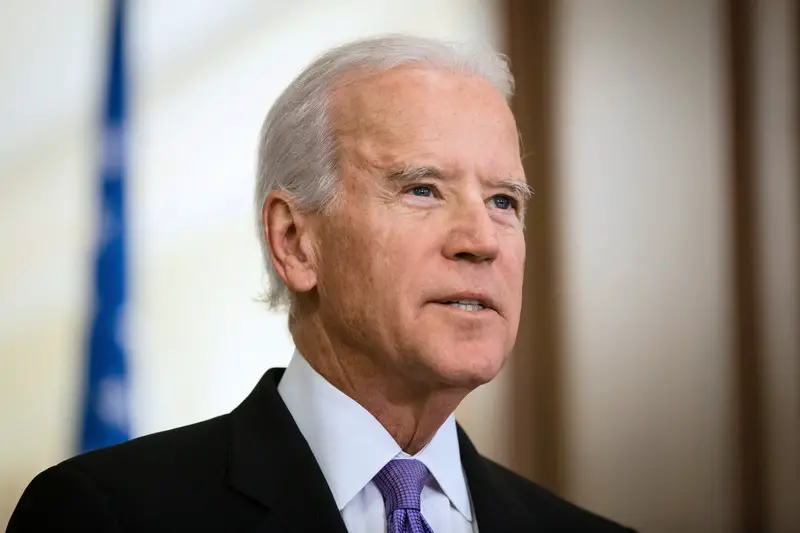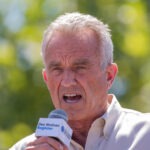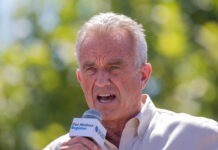On Thursday, December 26, President Joe Biden, along with his family, landed in St. Croix, United States Virgin Islands, for a vacation at a beachfront villa owned by a wealthy supporter. This visit is under increasing scrutiny due to Biden’s recurring acceptance of free accommodation from wealthy business figures.
The President, 82, his wife Dr. Jill Biden, and their daughter Ashley Biden traveled aboard Air Force One. They were welcomed at the beachfront property owned by Bill and Connie Neville, who are executives in the software industry. The villa, which has a pool, direct beach access, and panoramic views, would typically cost around $900 per night on VRBO, a vacation rental platform.
The Bidens have made this trip a yearly tradition. This visit marks their third consecutive New Year’s holiday in St. Croix. Last year, President Biden expressed his wish to return the following year.
The Nevilles, who run the US Viking software company and created the ENPS content platform sold by The Associated Press, have been invited to state dinners hosted by Biden. Their first invitation came just 26 days before President Biden’s first visit to their St. Croix property.
Throughout his presidency, Biden has enjoyed free stays at numerous properties owned by wealthy supporters. Notable examples include four Thanksgiving-week stays at David Rubenstein’s Nantucket, Massachusetts compound; a five-day stay at Joe Kiani’s California ranch; and a nine-day vacation at Tom Steyer’s Lake Tahoe waterfront retreat in Nevada.
Critics point out that Biden’s failure to disclose these stays in his annual ethics forms could breach federal law. Specifically, under 18 U.S. Code § 1001, intentionally leaving out gifts from federal disclosure forms could lead to a prison sentence of up to five years. The White House counters this by stating that the current federal law is ambiguous regarding the reporting requirements for such stays.
The House Oversight Committee is advocating for reforms in federal ethics laws to improve transparency in such situations. The Committee Chair, James Comer, stresses the need for increased accountability to the American public regarding these arrangements between government officials and wealthy backers.
In August 2023, the Biden family’s stay at Tom Steyer’s Lake Tahoe property sparked controversy when the White House initially claimed the Bidens would pay for their stay. This led to a brief local investigation into Steyer’s lack of a rental permit, which was subsequently dropped without any given reason.
The trend of unpaid stays started early in Biden’s presidency when his family requested Maria Allwin, widow of a notable hedge fund operator, to use her vacation mansion in Kiawah Island, South Carolina, without payment.
Joe Kiani, who hosted the Bidens for five days at his California ranch, has received significant government contracts during the Biden administration. Kiani was also appointed to an advisory board by Biden, leading to Republican scrutiny of the relationship between the free accommodations and government access.
The conservative watchdog group, the Center for Renewing America, has lodged a complaint with the Department of Justice regarding these undisclosed stays. The complaint specifically references the Ethics in Government Act of 1978, which mandates that federal officeholders report such benefits.
According to ethics experts, unless the homeowners are personal friends of the Bidens and were present during the stays, the vacations should have been reported on official disclosure forms. The White House has defended Biden’s transparency record, asserting he has implemented the “strongest ethics rules in history.”
The St. Croix property of the Nevilles, where the Bidens stayed, was previously used in promotional materials highlighting Biden’s visits during his vice presidency. Unlike his predecessor Donald Trump, who frequently stayed at his own properties, raising other ethical questions, Biden has consistently preferred accommodations with notable supporters.
David Rubenstein, who has hosted the Bidens for four Thanksgiving-week stays at his Nantucket compound, was given a speaking engagement by the President at a Washington lunch in September. While these stays are presumed to have been unpaid, neither party has confirmed the arrangements.
Reports indicate that Biden has spent over 500 vacation days during his presidency, which equates to roughly 40% of his time in office. This is equivalent to nearly 48 years of vacation for an average American worker, typically receiving 11 days off annually.
Critics have expressed concerns over the President’s frequent absences, especially during times of national and international challenges. Mark Paoletta, former general counsel of the White House budget office under President Donald Trump, commented, “The image of Biden fast asleep and lying flat on his back in his chair at the beach while America and the world is on fire will define the Biden presidency.”
In comparison, Donald Trump spent around 26% of his presidency on personal trips, totaling approximately 380 days. Other predecessors like Ronald Reagan and Barack Obama each spent about 11% of their presidencies on vacation, while Jimmy Carter took only 79 days off during his single term, accounting for 5% of his tenure.
Despite criticism, White House aides defend President Biden’s time away, stating that he remains on call and continues to work remotely during his vacations. White House spokesperson Andrew Bates noted, “Presidents of the United States are constantly on the job, regardless of their location; whether they’re on a state visit overseas or just 100 miles from the White House for a short trip to Wilmington.”
Presidential vacation debates are not new. Presidents have historically taken time away from the White House, balancing the demands of the office with personal time. However, the extent and perception of these absences often become the subject of public and political discourse.











